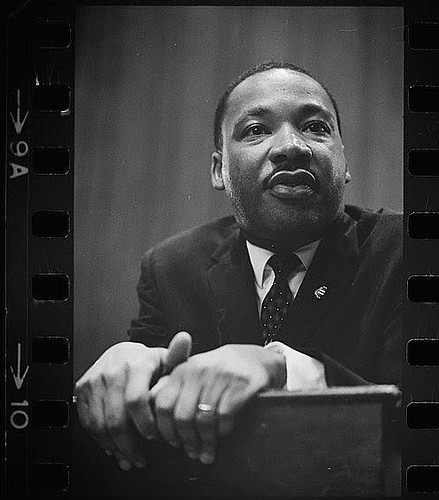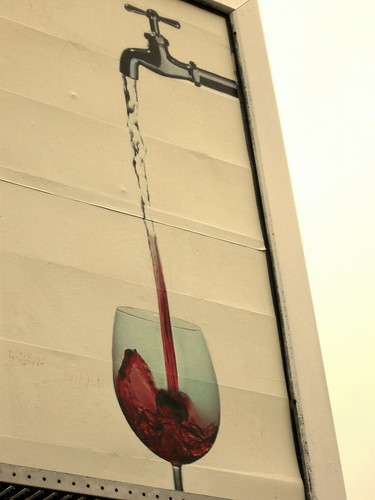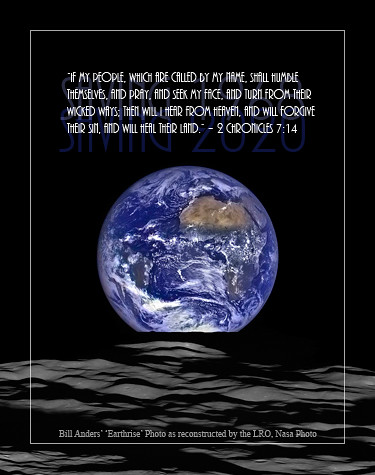
Volume XVIII, Issue XXIId: Reigniting the Dream!
“The Beloved Community”
Dr. Martin Luther King’s Dream
The idea of “Beloved Community” was a central concept in the thinking of Dr. Martin Luther King. He pushed for desegregation and an end to economic injustice, but he saw beyond the struggle a true integrated society. He believed that such a community of love and justice was possible where brotherhood would be an actuality in all of social life. King saw integration as much more inclusive and positive than desegregation. Desegregation was essentially negative because it simply eliminated discrimination. It could be accomplished by laws. Integration however, he defined as: “the positive acceptance of desegregation and the welcomed participation of Negroes in the total range of human activities.” He realized this was a change that could not be wrought from outside, but must happen within through changed attitudes. It required personal and social relationships created in love – and these cannot be legislated.
To that end, Dr. King not only worked for the rights of black people in Mississippi, but poor white people in Appalachia as well. In his last book he writes: “Our loyalties must transcend our race, our tribe, our class, and our nation…” His Christian faith did indeed inspire him to work tirelessly for that “Better Kingdom!” He never lost hope that “there will be a great camp meeting in the promised land.” It is said of him: “His hope was rooted in his faith in the power of God to achieve His purpose among humankind within history.”[1.]

Dr. Martin Luther King: "I have a dream."
“I Have a Dream!”
Dr. Martin Luther King
Delivered August 28, 1963
I am happy to join with you today in what will go down in history as the greatest demonstration for freedom in the history of our nation.
Five score years ago, a great American, in whose symbolic shadow we stand today, signed the Emancipation Proclamation. This momentous decree came as a great beacon light of hope to millions of Negro slaves who had been seared in the flames of withering injustice. It came as a joyous daybreak to end the long night of their captivity.
But one hundred years later, the Negro still is not free. One hundred years later, the life of the Negro is still sadly crippled by the manacles of segregation and the chains of discrimination. One hundred years later, the Negro lives on a lonely island of poverty in the midst of a vast ocean of material prosperity. One hundred years later, the Negro is still languishing in the corners of American society and finds himself an exile in his own land. So we have come here today to dramatize a shameful condition.
In a sense we have come to our nation's capital to cash a check. When the architects of our republic wrote the magnificent words of the Constitution and the Declaration of Independence, they were signing a promissory note to which every American was to fall heir. This note was a promise that all men, yes, black men as well as white men, would be guaranteed the unalienable rights of life, liberty, and the pursuit of happiness.
It is obvious today that America has defaulted on this promissory note insofar as her citizens of color are concerned. Instead of honoring this sacred obligation, America has given the Negro people a bad check, a check which has come back marked "insufficient funds." But we refuse to believe that the bank of justice is bankrupt. We refuse to believe that there are insufficient funds in the great vaults of opportunity of this nation. So we have come to cash this check — a check that will give us upon demand the riches of freedom and the security of justice. We have also come to this hallowed spot to remind America of the fierce urgency of now. This is no time to engage in the luxury of cooling off or to take the tranquilizing drug of gradualism. Now is the time to make real the promises of democracy. Now is the time to rise from the dark and desolate valley of segregation to the sunlit path of racial justice. Now is the time to lift our nation from the quick sands of racial injustice to the solid rock of brotherhood. Now is the time to make justice a reality for all of God's children.
It would be fatal for the nation to overlook the urgency of the moment. This sweltering summer of the Negro's legitimate discontent will not pass until there is an invigorating autumn of freedom and equality. Nineteen sixty-three is not an end, but a beginning. Those who hope that the Negro needed to blow off steam and will now be content will have a rude awakening if the nation returns to business as usual. There will be neither rest nor tranquility in America until the Negro is granted his citizenship rights. The whirlwinds of revolt will continue to shake the foundations of our nation until the bright day of justice emerges.
But there is something that I must say to my people who stand on the warm threshold which leads into the palace of justice. In the process of gaining our rightful place we must not be guilty of wrongful deeds. Let us not seek to satisfy our thirst for freedom by drinking from the cup of bitterness and hatred.
We must forever conduct our struggle on the high plane of dignity and discipline. We must not allow our creative protest to degenerate into physical violence. Again and again we must rise to the majestic heights of meeting physical force with soul force. The marvelous new militancy which has engulfed the Negro community must not lead us to a distrust of all white people, for many of our white brothers, as evidenced by their presence here today, have come to realize that their destiny is tied up with our destiny. They have come to realize that their freedom is inextricably bound to our freedom. We cannot walk alone.
As we walk, we must make the pledge that we shall always march ahead. We cannot turn back. There are those who are asking the devotees of civil rights, "When will you be satisfied?" We can never be satisfied as long as the Negro is the victim of the unspeakable horrors of police brutality. We can never be satisfied, as long as our bodies, heavy with the fatigue of travel, cannot gain lodging in the motels of the highways and the hotels of the cities. We cannot be satisfied as long as the Negro's basic mobility is from a smaller ghetto to a larger one. We can never be satisfied as long as our children are stripped of their selfhood and robbed of their dignity by signs stating "For Whites Only". We cannot be satisfied as long as a Negro in Mississippi cannot vote and a Negro in New York believes he has nothing for which to vote. No, no, we are not satisfied, and we will not be satisfied until justice rolls down like waters and righteousness like a mighty stream.
I am not unmindful that some of you have come here out of great trials and tribulations. Some of you have come fresh from narrow jail cells. Some of you have come from areas where your quest for freedom left you battered by the storms of persecution and staggered by the winds of police brutality. You have been the veterans of creative suffering. Continue to work with the faith that unearned suffering is redemptive.
Go back to Mississippi, go back to Alabama, go back to South Carolina, go back to Georgia, go back to Louisiana, go back to the slums and ghettos of our northern cities, knowing that somehow this situation can and will be changed. Let us not wallow in the valley of despair.
I say to you today, my friends, so even though we face the difficulties of today and tomorrow, I still have a dream. It is a dream deeply rooted in the American dream. I have a dream that one day this nation will rise up and live out the true meaning of its creed: "We hold these truths to be self-evident: that all men are created equal."
I have a dream that one day on the red hills of Georgia the sons of former slaves and the sons of former slave owners will be able to sit down together at the table of brotherhood. I have a dream that one day even the state of Mississippi, a state sweltering with the heat of injustice, sweltering with the heat of oppression, will be transformed into an oasis of freedom and justice.
I have a dream that my four little children will one day live in a nation where they will not be judged by the color of their skin but by the content of their character. I have a dream today.
I have a dream that one day, down in Alabama, with its vicious racists, with its governor having his lips dripping with the words of interposition and nullification; one day right there in Alabama, little black boys and black girls will be able to join hands with little white boys and white girls as sisters and brothers.
I have a dream today.
I have a dream that one day every valley shall be exalted, every hill and mountain shall be made low, the rough places will be made plain, and the crooked places will be made straight, and the glory of the Lord shall be revealed, and all flesh shall see it together. This is our hope. This is the faith that I go back to the South with. With this faith we will be able to hew out of the mountain of despair a stone of hope. With this faith we will be able to transform the jangling discords of our nation into a beautiful symphony of brotherhood. With this faith we will be able to work together, to pray together, to struggle together, to go to jail together, to stand up for freedom together, knowing that we will be free one day.
This will be the day when all of God's children will be able to sing with a new meaning, "My country, 'tis of thee, sweet land of liberty, of thee I sing. Land where my fathers died, land of the pilgrim's pride, from every mountainside, let freedom ring."
And if America is to be a great nation this must become true. So let freedom ring from the prodigious hilltops of New Hampshire. Let freedom ring from the mighty mountains of New York. Let freedom ring from the heightening Alleghenies of Pennsylvania!
Let freedom ring from the snowcapped Rockies of Colorado!
Let freedom ring from the curvaceous slopes of California!
But not only that; let freedom ring from Stone Mountain of Georgia! Let freedom ring from Lookout Mountain of Tennessee!
Let freedom ring from every hill and molehill of Mississippi. From every mountainside, let freedom ring.
And when this happens, when we allow freedom to ring, when we let it ring from every village and every hamlet, from every state and every city, we will be able to speed up that day when all of God's children, black men and white men, Jews and Gentiles, Protestants and Catholics, will be able to join hands and sing in the words of the old Negro spiritual, "Free at last! free at last! thank God Almighty, we are free at last!"
Reigniting the Dream
Lois M. Tupyi’s ‘Redemptive Compassion’
People who live in chronic need often lose their ability to hope, dream and make plans for their future.” – Lois M. Tupyi
Sometime around 1933 the United States government entered the business of meeting human needs. As the Great Depression drag on, Government found that it could indeed provide necessities and build houses. Eleanor Roosevelt’s planned community of Greenbelt, Maryland provided clean and new (albeit uniform) houses and apartments to replace the old ‘substandard’ housing of the previous century. In the surrounding fields of the Beltsville Agricultural Research Center, modern chemical dependent agriculture was being developed to assure we’d never have another ‘Dust Bowl.’ While the intent was indeed noble, the result was that people no longer depended on neighbors. Churches ceased to be the primary engine of compassionate care, called ministers being replaced by caseworkers. People became trapped in what would become known as generational poverty. Living from government check to government check, they lost the spark of IMAGO DEI – the ‘Image of God’ that really defines each one of us. Living in chronic need (or chronic dependency) can alter a person’s thinking. If we do not see the roots of it it may look like laziness or mental incapacity. People in the church who want to help become frustrated. Ministry is ineffective at best because there is no real connection between people.
Lois Tupyi is the Executive Director of Love in the Name of Christ, Treasure Valley, Idaho. She’s a Renaissance woman and the author of Selah: Pause and Consider, a devotional that goes beyond the short reading format to encompass Bible reading, praise music and beautiful photography. She’s all about restoring Christian ministry as the Defining Difference, bringing its impact to the local community. Seeing that the church often struggled with trying to provide relational ministry to people in need, Tupyi developed her Redemptive Compassion curriculum. So many of our commonly used methods seem so ineffective in reducing or alleviating ongoing need, and Redemptive Compassion addresses that deficiency by seeing the total person. Scripture shows us that humankind exists in body, soul and spirit. Love in the Name of Christ indeed begins by providing material help but begins immediately to bring disconnected individuals into relationship.
On Thursday evenings in Fishersville, Virginia, the Love Your Neighbor time begins. Church vans from area churches bring ‘Neighbors’ from Staunton, Waynesboro and Augusta County together for a meal and encouraging fellowship. If it looks a bit like the Biblical coming together for “Prayer, Teaching and Breaking of Bread,” that is by design. We begin arriving a few minutes before six and there is much lively conversation between Neighbors and ministry volunteers. Karen, our leader, calls us to prayer as her little daughter socializes with people in the room. A dinner is provided each week by a different local congregation. After dinner, Neighbors gather in small classes that teach Godly self image, basic finances and how to have a relationship with God. A whole group of local churches are involved in the ministry and the goal is to bring Neighbors into ongoing relationship, not only with God, but with His people.
When a Neighbor has completed all of the classes offered, and that may take a couple of years, they graduate from the program. They often offer stirring testimonies on the graduation night and by then have hopefully developed relationships in one of the local churches represented. Love in the Name of Christ is not a church, but it is an arm of THE Church to bring compassion and healing. Many former Neighbors do continue to volunteer in the program which has many opportunities. There is a warehouse for meeting physical needs, a thrift store and of course the Thursday night program. The real ministry is that a person moves from simply being a recipient of help to someone who dreams of making a difference in the world – a person fully alive!
Why Beauty Matters
Roger Scruton
False Prophets
[click to read]
By Charles Love
America is reeling. Before we could emerge from the fog of Covid-19, we were thrust into the saga of the George Floyd killing and the subsequent unrest. When events like this play out before a nation on video, raw emotion can erupt. In this case, it was amplified by shelter-in-place orders, massive unemployment claims, and small businesses teetering on extinction.
Over the past two weeks, we have seen peaceful protests, but also looting, businesses torched, attacks on police, and the desecration of some of the nation’s most revered memorials. All of this is numbing. Recently, I thought that I had finally turned the corner on my anger over the Floyd killing. (I’m African-American myself.) “Where do we go from here?” I wondered. “How do we get something positive out of this?”
But then the demands shifted. Cries for justice morphed into “Defund the police.” We started hearing calls from white Americans to do something to help ease the difficulties blacks are facing. On the surface, this seems good; the intentions definitely are good. The problem is that, with no context or reference to what is needed in the black community, and often with few black friends or colleagues to consult, many Americans—from those in corporate America to vocal social media consumers—are throwing support and resources behind Black Lives Matter, without considering carefully what the group actually stands for.
Black Lives Matter was started in 2013 to shed light on mistreatment of and brutality against blacks by police, but it has become a radical leftist organization. The “Herstory” section of its website, for example, reads: “Black Lives Matter is an ideological and political intervention in a world where Black lives are systematically and intentionally targeted for demise.” This proclamation is demonstrably untrue: there is no evidence that anyone—including the police and white supremacists—is killing black people in a targeted campaign, nor are the numbers of such deaths significant compared with the number of blacks killed by other blacks. But beyond BLM’s inflammatory and false rhetoric, there are important reasons to avoid the group. (read more)

Factory stacks in Waynesboro, Virginia. Photo by Bob Kirchman.
Something to Think About
[click to read]
Hate Didn’t Elect Donald Trump; People Did
By Victoria Sanders
Over the summer, my little sister had a soccer tournament at Bloomsburg University, located in central Pennsylvania. The drive there was about three hours and many of the towns we drove through shocked me. The conditions of these towns were terrible. Houses were falling apart. Bars and restaurants were boarded up. Scrap metal was thrown across front lawns. White, plastic lawn chairs were out on the drooping front porches. There were no malls. No outlets. Most of these small towns did not have a Walmart, only a dollar store and a few run down thrift stores. In almost every town, there was an abandoned factory.
My father, who was driving the car, turned to me and pointed out a Trump sign stuck in a front yard, surrounded by weeds and dead grass. “This is Trump country, Tori,” He said. “These people are desperate, trapped for life in these small towns with no escape. These people are the ones voting for Trump.”
My father understood Trump’s key to success, even though it would leave the media and half of America baffled and terrified on November 9th. (read more)

Corridor H, U. S. 48 through the mountains of West Virginia, promises to bring commerce and jobs to the region. Photo by Bob Kirchman.

A billboard between the towns of Thomas and Davis in West Virginia asks: "Got Faith?" Photo by Bob Kirchman.
My Brother's Livelihood Matters
[click to read]
The Current Crisis Requires an Outpouring of Love
The need is great, and looking for ways to help can be daunting. Angelique McNaughton, a regional representative of GoFundMe, has provided a list of Minneapolis businesses affected by the recent riots and/or loss of income due to the COVID-19 crisis. Use care in vetting them and feel free to pass it on across your social networks. “Little by little, a little becomes a lot.” – Tanzanian Proverb (click to help)







